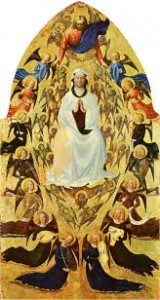 If the leading figures of the gospel had had a kind of incorporated distance recorder, I think that the title for the most tireless walker – leaving Jesus to one side – would have gone to that young girl of Nazareth. Always on a journey…From that completely Jewish morning when she was immortalised while she slowly went towards the fountain of the village with her water jar on her head, from that dawn of that distant early morning, she never stopped. From one point to another of Palestine, even crossing the frontier to go abroad. The mountains of Judea traversed to arrive in Nazareth. An obligatory direction towards Bethlehem turning left to halt at the temple of Jerusalem. A hidden exit from the country amidst the sands of Egypt and a cautious return to Judea. A journey in a group for the pilgrimage to Jerusalem and double the distance searching desperately for that rebellious son of hers. Going up the incline to Calvary to admire the torture of the cross. Mary: a woman of roads! Sitting only in Cana. Seated, but not still!
If the leading figures of the gospel had had a kind of incorporated distance recorder, I think that the title for the most tireless walker – leaving Jesus to one side – would have gone to that young girl of Nazareth. Always on a journey…From that completely Jewish morning when she was immortalised while she slowly went towards the fountain of the village with her water jar on her head, from that dawn of that distant early morning, she never stopped. From one point to another of Palestine, even crossing the frontier to go abroad. The mountains of Judea traversed to arrive in Nazareth. An obligatory direction towards Bethlehem turning left to halt at the temple of Jerusalem. A hidden exit from the country amidst the sands of Egypt and a cautious return to Judea. A journey in a group for the pilgrimage to Jerusalem and double the distance searching desperately for that rebellious son of hers. Going up the incline to Calvary to admire the torture of the cross. Mary: a woman of roads! Sitting only in Cana. Seated, but not still!
The evangelist Luke, at the beginning of his account of this journey, characterises it with two words that the commentators explain extensively: ‘Mary set off towards the mountain and hurriedly reached a city in Judea’. ‘Hurriedly’: the term used make us understand the speed of her decision and action: a minimum of time to prepare for the departure, the decision to take the shortest route and to arrive as soon as possible. The force and the naturalness of that virgin girl of Nazareth are in harmony with a generous heart that seeks to bring joy, happiness and help. The same word also enables us to guess the character traits of Mary – resistance and agility that are able to face up to a journey that is one of the hardest there is. But she was the daughter of a nomadic people that retained a nostalgia for limitless horizons and had a taste for free air and intrepid travelling.
I do not want her as a guest, I want her as a fellow-citizen. I want to see her in the following way: all mine, but without jealousies. And happy to share my experience of faith which is contradictory and exhilarating. Joyful to belong to my lineage of citizens, exiles incurably attracted to their native land. Always ready to lend me a hand. To infect me with her hope. To make me feel, with her striking beauty, a need for God. And to share with me moments of celebration and of tears. Scents of ovens and washing. Tears on departures and arrivals. Like a neighbour of ancient times. Or as a splendid creature who lives below me and has the same street number. With the scent of a mother attached to her.
Mary went up to heaven body and soul: for the body as well there is a place in God. Heaven is no longer for us a very distant and unknown sphere. In heaven we have a mother. And the Mother of God, the Mother of the Son of God, is our Mother. Jesus himself said this. He made her our Mother when he said to his disciple and to all of us: ‘Behold your Mother!’ In heaven we have a Mother. Heaven is open, it has a heart.
What does the Assumption of Mary give to our journeys, to our lives? In the Assumption we see that in God there is space for man; God Himself is the house of the many rooms that Jesus spoke about (cf. Jn 14:2). God is the home of man and in God there is the space of God. And Mary, uniting herself, united to God, does not grow distant from us, she does not go to an unknown galaxy. Indeed, those who draw near to God draw near to her because God is near to all of us, and Mary, united to God, shares in the presence of God; she is very near to us, to each one of us. There are fine words of St. Gregory the Great about St. Benedict which we can also now apply to Mary: St. Gregory the Great says that the heart of St. Benedict became so great that the whole of the creation could enter his heart. This applies even more to Mary: Mary, totally united to God, has such a large heart that the whole of the creation can enter her heart. In God there is space for man, and God is near, and Mary, united to God, is very near: her heart is as great as the heart of God.
There is not only space for man in God – there is space for God in man. We see this in Mary as well, the Holy Ark which brings the presence of God. Inside us there is space for God and this presence of God inside us, which is so important in shining light on the world in its sadness, in its problems, this presence is achieved in faith: in faith we open the doors of our being so that God enters us, so that God can be the force that gives life and journeying to our being. Inside us there is space, let us open ourselves as Mary did, saying: ‘May your will be done, I am a servant of the Lord’. In opening ourselves, we lose nothing. On the contrary: our lives become rich and great.
A great heart, the presence of God in the world, a space of God inside us and a space of God for us, being waited for: this is the symphony of this feast day, the indication provided to us by reflecting on this solemn event.
Let us entrust ourselves to her maternal intercession so that she obtains for us from the Lord a strengthening of our faith in eternal life; may she help us to live well the time that God offers us with hope!
A Christian hope that is not only nostalgia for heaven but also a living and at-work wish for God here in the world, a wish for God that makes us tireless pilgrims, nurturing in us the courage and strength of faith, which at the same time is the courage and strength of love.



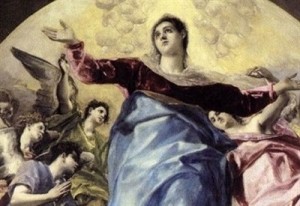





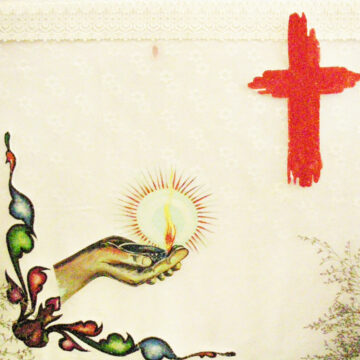

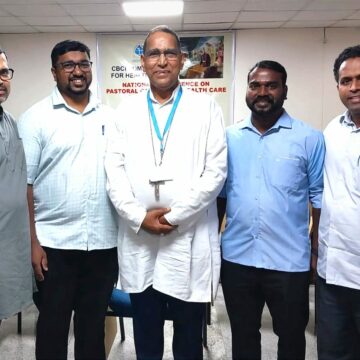


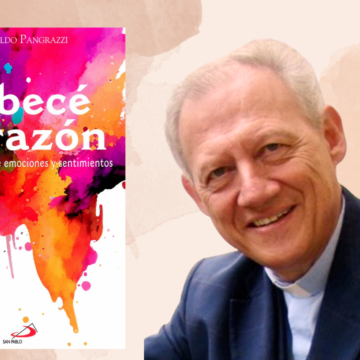
Camillians on Facebook
Camillians on Twitter
Camillians on Instagram